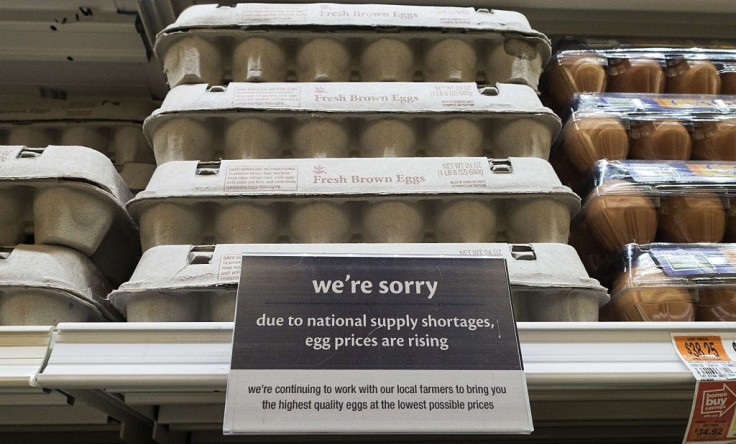
Families who will be shopping for egg supplies for the Easter festivities could be in for a shock as egg prices in some states in America have increased by 25 percent as of Monday, April 4, 2022.
Data released by the U.S. Department of Agriculture (USDA) showed that prices for jumbo, extra-large, and large-sized eggs increased by 30 to 31 cents in California. The cost of medium-sized eggs is up by seven cents, while the price for small-sized eggs is higher by 10 cents. In the Midwest, prices for a whole carton of eggs jumped by 60 percent and are now selling at over $2.50.
Per Fox Business News, some states, such as New York, have yet to reflect an egg price increase, but USDA officials said that this could change and may impact prices for chicken and turkey meat as well amid an outbreak of the H5N1 avian influenza A on many farms in the country. Some 24 states have reported the presence of the bird flu virus, effectively destroying flocks and diminishing the egg supply.
Worst Bird Flu in Seven Years
Egg prices usually jump between March and April every year because of Easter. However, the price increase started rolling out at the beginning of the year because of inflation.
By February, egg prices continued to surge in Indiana, Kansas, Kentucky, Maryland, and Virginia, where bird flu cases were first detected. Cal Maine Foods CEO Max Bowman confirmed the virus disruption in a report from WAPT.
The bird flu virus originally came from wild birds that hunters killed in North and South Carolina, which has then infiltrated commercial chicken and turkey flocks in nearby states. Two months later, the virus spread has been rapid in its impact on the egg and chicken or turkey meat supplies.
The current bird flu spread has been the worst in the country in seven years; thus, it might be a while before consumers see a price drop at the grocery stores. In 2015, the industry took six months to recover from the bird flu outbreak.
High Path Avian Influenza has been confirmed in a commercial turkey flock in Johnston County. The positive sample was identified by our Vet Diagnostic Lab & confirmed by the USDA APHIS National Vet Services Lab in Iowa. Learn more here: https://t.co/7F1wDapYSu. #NCAgriculture pic.twitter.com/7GDsDzPXp4
— NCDA&CS (@NCAgriculture) March 30, 2022
Bird Flu Risk in Humans
Hobey Bauhan from the Virginia Poultry Federation told WHSV that the bird flu risk is quite low in humans who are not bird owners or not tending to a flock. According to the Animal and Plant Health Inspection Service, the general consuming public eating eggs this Easter is also not at risk of getting sick from the virus.
Bauhan said that the real concern is those who have chickens and other birds on their farms. They must have biosecurity measures in place, such as disinfection, wearing sanitized protective gear, and avoiding contact with the birds. They also need to contain the flock and avoid touching surfaces that have likely been contaminated with feces, saliva, or mucous from wild or domestic birds.
Yet Bauhan also said it is rare for humans to contract avian influenza, and there have been no cases on record in the U.S. In most cases, biosecurity measures are in place to reduce the economic impact of bird flu.
Related Article: Mom Tries and Succeeds to Do Grocery Shopping on a Budget From 2012